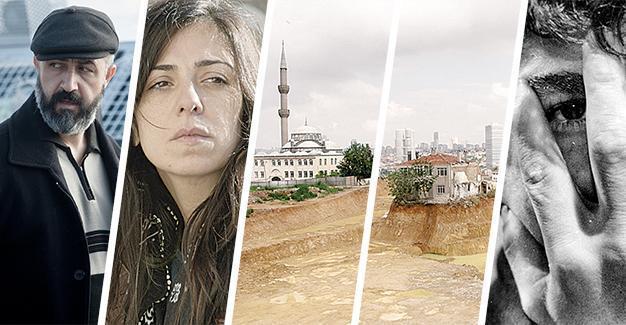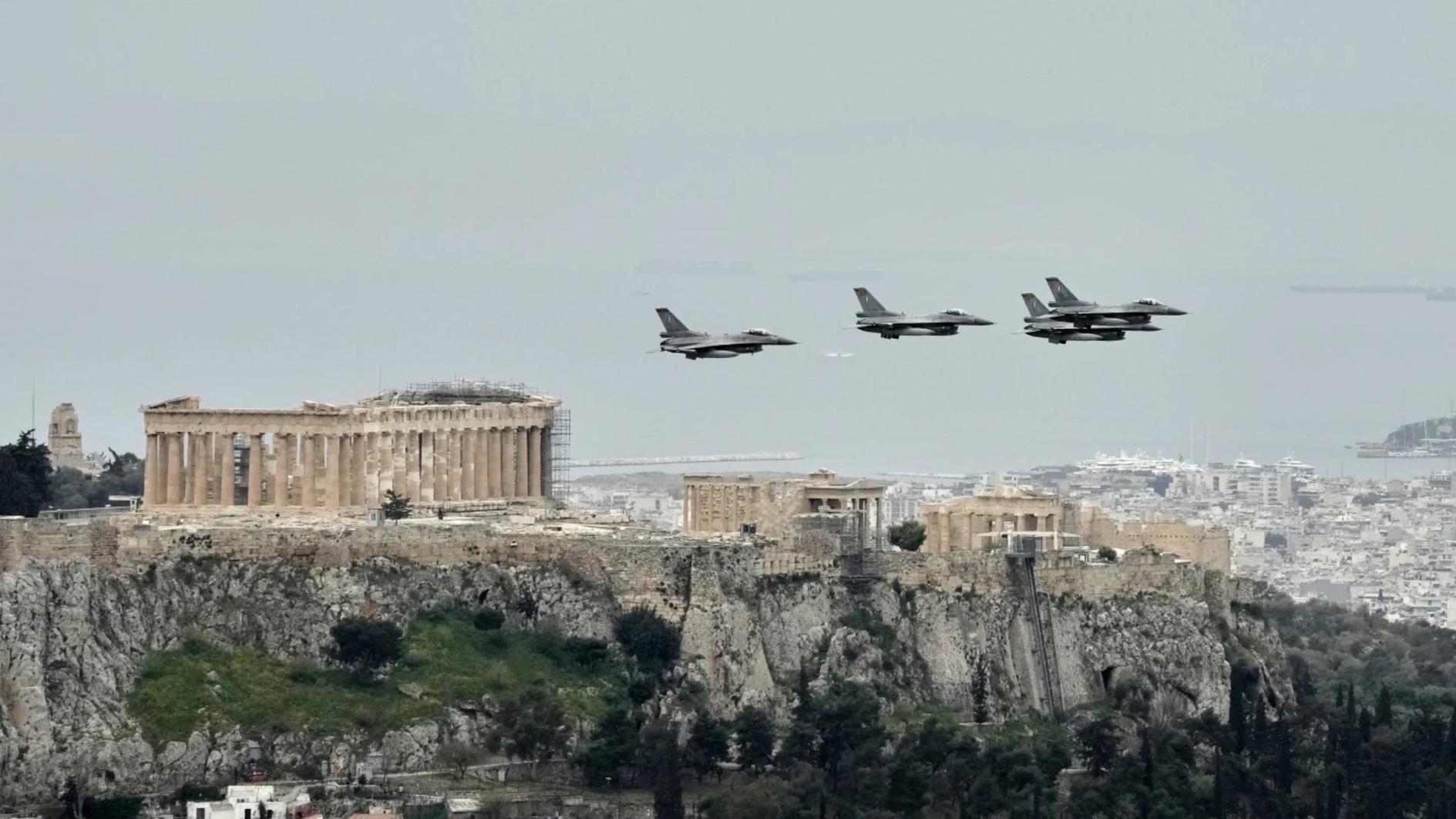‘Yearning:’ A tale of Istanbul’s ghosts
Emrah Güler - ANKARA
 “We are on our way from Germany, traveling to Istanbul in a container ship. Not because we are refugees or immigrants, but because we are low-budget filmmakers.” So begins Ben Hopkins’s feature “Yearning.” His previous film, “Market: A Tale of Trade,” won four awards at the Antalya Golden Orange Film Festival in 2008, including Best Film and Screenplay for Hopkins.
“We are on our way from Germany, traveling to Istanbul in a container ship. Not because we are refugees or immigrants, but because we are low-budget filmmakers.” So begins Ben Hopkins’s feature “Yearning.” His previous film, “Market: A Tale of Trade,” won four awards at the Antalya Golden Orange Film Festival in 2008, including Best Film and Screenplay for Hopkins.“The channel that commissioned this film, a documentary about the life of Istanbul, has so little money that they couldn’t afford plane tickets,” muses Hopkins. As the director and the film crew arrive in Istanbul, the film gives the impression of a making-of documentary, a documentary within a documentary, of yet another Orientalist look at Istanbul from the West.
Towards its second half, “Yearning” veers into something altogether different, something surrealist that is somewhere between a mockumentary and cleverly-crafted fiction. “The TV channel wants time-lapse photography of the crowded streets, bustling city life sequences and techno music. They want facts and figures and reportage,” Hopkins narrates in detachment of their mission, a commissioned documentary no more than ordinary.
Gradually, Hopkins, or the narrator played by Hopkins, is left alone as he is drawn into delirium, into an Istanbul haunted by ghosts of humans and cats, of antiquity and today. “There is something else: Beneath the day time city of commerce and tourism, something mysterious and strange. Coming out of the shadows of this vast, ancient metropolis, a yearning, a secret, hidden world.”
‘Istanbul’s multitudinous dead’
The second half follows a disheveled Hopkins trying to find his way through the underbellies of Istanbul, the migrants, refugees, undocumented workers of the day, and shadows, darker corners of the night, searching for “the city’s dreams,” “its twilight half-truths.” “Is a soul of a place in its outward, public face?” asks Hopkins, “Or in its hidden, secretive shadows?”
“Official figures state that the population of Istanbul is around 14 million. But some say the figure is closer to 20 million. So who are these 6 million ghosts?” Hopkins’s ghosts are both figurative, the “paperless” workers and citizens of Istanbul, and real ghosts, of cats and of “the Istanbul’s multitudinous dead” in a city that has lasted eight millennia.
The lesser talked about inhabitants of Istanbul take center stage in the film as well: The “silent, mysterious, watching” cats of Istanbul. “Everywhere you go in Istanbul, you are being watched… by cats. They are everywhere. After a while, you begin to suspect that the cats of Istanbul are not just normal cats.” One interviewee, Faruk Korkmaz, tells Hopkins that cats are “not in fact animals, but minor deities,” and that, before humanity “there used to be a civilization of cats.”
In another interview, a young artist presents her work, documenting digitally the spirits of Istanbul. Over an interactive map of the world, a lamp lights up in the location when the word “Istanbul” is mentioned on social media. Berlin and London light up, as well as locations in Siberia and Australia.
Giving in to Istanbul
“This means that Istanbul is not just a physical city,” says the artist, “It is not just made of bricks, asphalt, concrete.” For Hopkins, “the spirit of Istanbul exists everywhere in the minds of those who think of her. Istanbul’s spirit, its ghost, wanders the entire surface of the world.”
When Hopkins meets with Korkmaz, he asks: “What’s your film about exactly?” The answer is simple: “Istanbul.” Korkmaz retorts, “Istanbul, that’s an infinite subject.” Indeed it is, especially for Hopkins, who transforms from a real filmmaker into a delirious dreamcatcher. “A city that has lived for millennia, which has been home to millions of souls, past and present, living and dead… how to describe it? How to encompass it in a film?”
“A place of this multi-variety, of this grandeur and magnitude… can one ever fully understand it?” Towards the end, Hopkins gives into the abyss that is Istanbul. “Can one attempt to paint its portrait, without succumbing to its deep, ancient melancholy? Can one do this without, somehow, losing one’s orientation, losing one’s mind?”
Hopkins asks one construction worker amidst the rising towers of the city, referring to his comments on how those who come to Istanbul don’t leave the city. “So, according to you guys, I’ll never be able to leave Istanbul?” Smiling in glee, the worker answers, “You’ll never be able to leave.” Trapped in the shadows of Istanbul, Hopkins delivers a masterpiece through its unforgettable protagonist.
















